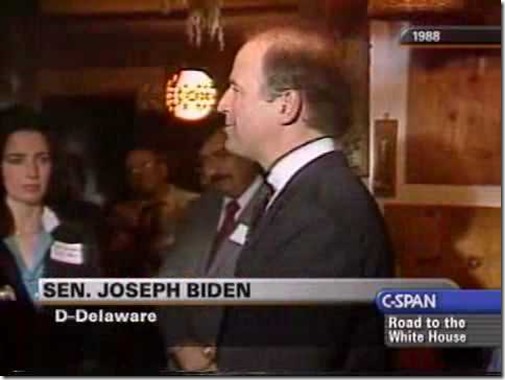Why Being Witty Can Kill Your Presentations
In the mid-1990s, my cousin invited me to join her for a bar crawl in Washington, DC. At some point during the day, we swung by an apartment in Dupont Circle to pick up one of her friends.
When we entered her friend’s basement apartment, I noticed a flier on a coffee table supporting Joe Biden’s 1996 Senate reelection campaign. Biden, you may remember, dropped out of the presidential race in 1988 after being accused of plagiarizing a speech—so I turned to my cousin and jokingly said, “I wonder if he plagiarized that flier?”
“Shhhhhhhhhhhhhhhhh!” she said, a look of horror crossing her face. “This is his son’s apartment!”
It’s been many years, so I don’t know which Biden son lived there (we were there to pick up one of his roommates). I also don’t know if he ever heard the comment—to the best of my memory, I never saw him, so I don’t even know if he was home at the time.
But that moment, which my cousin still needles me about, is etched in my memory and serves as a regular caution for me about the dangers of ad libbing.
Still, I like topical quips—so that moment aside, I remain prone to occasionally making a comment about someone in the news. Last week, for example, I delivered a presentation to a group of 40 communications professionals in Washington. As I was setting up a story, I was on the cusp of saying something along the lines of, “This is a real story, not a Brian Williams one.”
I hit the brakes right before saying it and held myself back. I realized that I had no idea who was in that audience. For all I knew, one of Brian Williams’s relatives, former colleagues, or friends could have been in the audience—and if that was the case, my witty aside could have made that person (and everyone else in the room aware of that relationship) uncomfortable.
Certainly, I could have referenced the Williams case if it was in context and if the analysis served a relevant point. But just for the sake of demonstrating my wit? It wasn’t worth the risk.
I often talk about the need to remain spontaneous and “in the moment” during presentations. But there are a lot of other, less risky ways to exhibit humor. Therefore, unless I know my audience well, I’m going to try hard to leave the irrelevant quips behind.
Note: The Biden story above is true to the best of my and my cousin’s recollection—we both remember that incident similarly. I tried to corroborate it by searching for where the Biden sons lived in 1996, but was unable to find verifying information.
Want to learn more about public speaking? Check out our recommended reading list!





I definitely hear your larger point but I think part of the problem with the Brian Williams quip is it’s not particularly witty. It’s just saying, “I’m aware of the Brian Williams kerfuffle and I think you are too.” I think if you come up with something genuinely funny, you’re more likely to get away with it.
For instance, I’m from Indiana but did a presentation to about 150 people I didn’t know in Florida. The night before I spoke was the governor’s debate where Charlie Crist and Rick Scott derailed their event and even threatened to cancel it altogether over a fan in Crist’s podium.
I began my presentation by saying “I just want you to rest assured, the presence or absence of a fan in this podium has no bearing on my willingness to make this presentation. We will have this workshop as scheduled.” I was barely halfway through my statement before I was drowned out by roaring laughter and applause. I had them from that point on.
I think it worked b/c even though it was a political topic, my comment didn’t betray whose ‘side’ I was on. It related directly to my own presentation and addressed the topic everyone was talking about. Also, even though I was from several hundred miles away, it let them know I was paying attention to their local issues and that I had made an attempt to know what was happening in their community.
So I agree with what you’re saying but I think if you do it right, using a bit of wit can be a tremendous asset to your presentation.
Matthew —
Thank you for comment — and good line about the Charlie Crist/Rick Scott “fangate” episode!
I think we’re in agreement. You selected the right target for your quip, it was timely, and it demonstrated awareness of local issues. The Brian Williams line I was tempted to use was more of a personal attack and risked being seen as a pejorative.
As for my line not being witty, you may be right. But I do know how to deliver a line. 🙂
Thank you for reading and taking the time to leave your own experience on the blog.
Best,
Brad